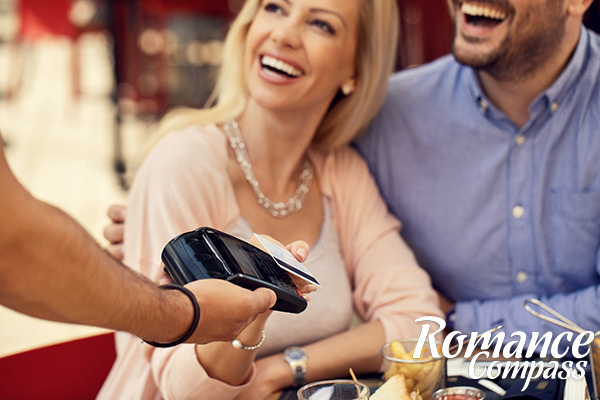Table of contents:
- Unpacking the complexities of first date etiquette: navigating the question of who pays
- Traditional views on who should pay
- Modern views on who should pay
- Closing thoughts: finding a payment solution that works for both parties
The question of who should pay on a first date has long been debated among those navigating the dating scene. Once a straightforward matter, with the traditional "man pays" rule being the unspoken expectation, the dynamics of dating have shifted in recent years, making the answer to this age-old question far from straightforward.

Unpacking the complexities of first date etiquette: navigating the question of who pays
The first date can be a nerve-wracking experience. With so many societal expectations and unspoken rules, it's difficult to know how to behave. For example, one of the biggest debates in the dating world is who should pay on a first date. Is it the man's job to pick up the bill, or should both parties split the cost? In this article, we'll explore the traditional and modern views on first-date etiquette and provide guidance on handling the often awkward question of who should pay.
The age-old question of first date etiquette
Dating is a ritual that has been around for centuries, and various customs and traditions have emerged over time. In the past, there was a clear set of rules and expectations for first dates. For example, the man was expected to take the lead and pay for the date, while the woman was expected to be passive and timid. However, times have changed, and so have the norms of first-date etiquette.
The shift in dating dynamics
With the rise of feminism and gender equality, there has been a shift in dating dynamics. Women have become more empowered, and the traditional "Man pays" rule is no longer necessary. Nowadays, there are many different approaches to who should pay on a first date, and the decision often depends on the individual couple's preferences and financial situation.
Traditional views on who should pay
The "Man pays" rule
The standard rule of first-date etiquette for many years was that the man pays. This was seen as a symbol of his wealth, power, and chivalry. The idea was that by paying for the date, the man showed his interest in the woman and his desire to take care of her. This rule was widely accepted, and it was considered rude for a woman to offer to pay her way.
The importance of chivalry
Chivalry was a code of conduct for knights in medieval times, and over time, the concept evolved to encompass the behavior of gentlemen towards women. The idea was that a gentleman should always be polite, respectful, and generous toward women. Paying for the date was seen as how a man could demonstrate his chivalry.
Modern views on who should pay

The "Going Dutch" approach
In recent years, a new trend has emerged in first-date etiquette - "Going Dutch." this means that both parties split the cost of the date equally. This approach has become popular to avoid the awkwardness of determining who should pay. It also reflects the increasing equality between men and women in modern society.
The rise of gender equality in dating
Gender equality has been a hot topic in recent years, and it's had a significant impact on dating culture. Women are no longer seen as passive and submissive; they are just as likely to initiate a date and offer to pay their way. This shift in attitudes has changed the norms of first-date etiquette, and there is no more room for personal choice and flexibility.
Closing thoughts: finding a payment solution that works for both parties
The question of who should pay on a first date is complex, and there is no one-size-fits-all answer. While there are traditional and modern views on first-date etiquette, the decision of who should pay often depends on the individual couple's preferences and financial situation. Therefore, it's essential to have an open and honest conversation about expectations and to find a payment solution that works for both parties. The beauty of personal choice and the significance of respect and consideration are key to navigating the often awkward question of who should pay on a first date.


Follow Us